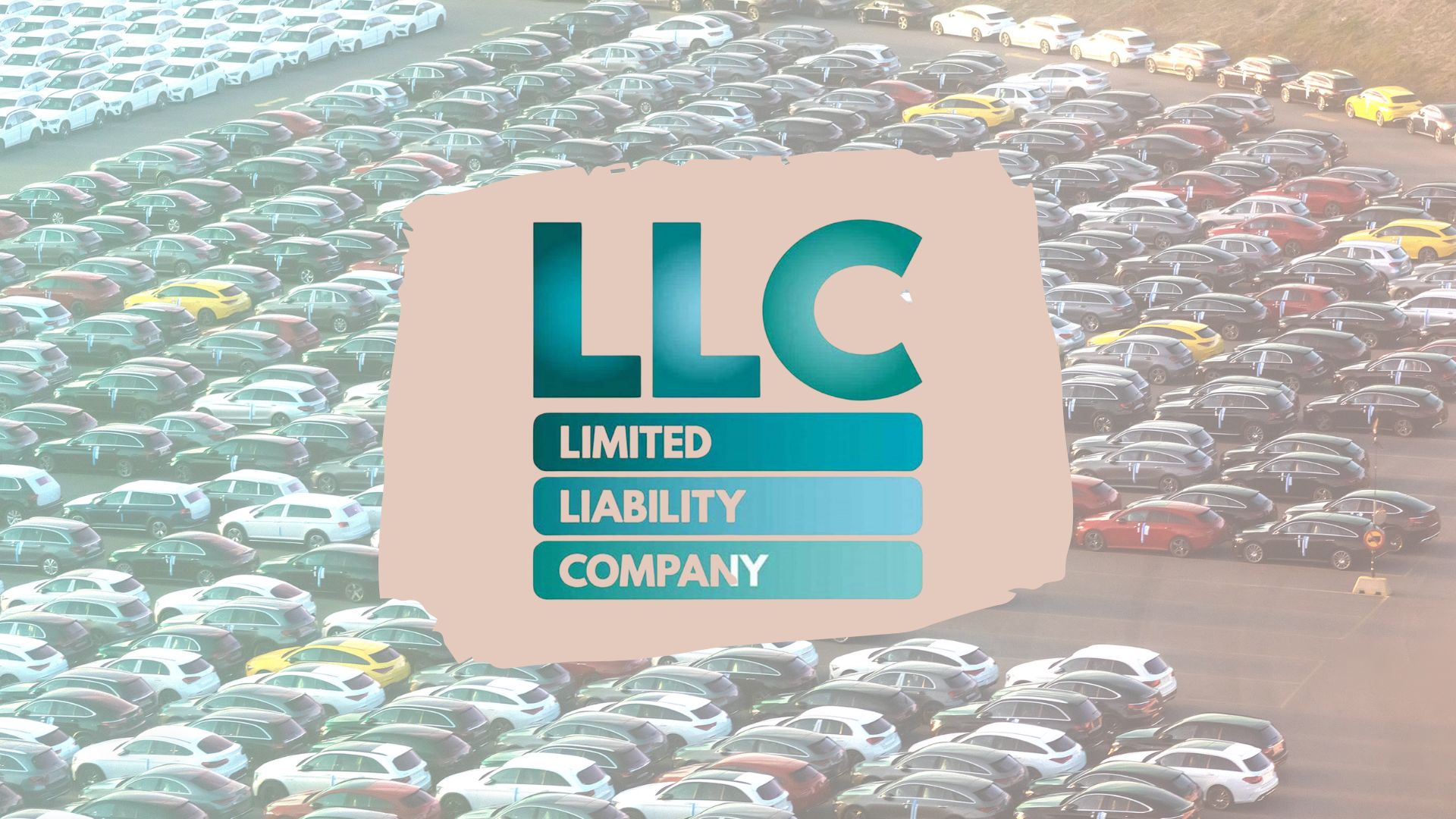Introduction
If you’re a truck owner operating under a Limited Liability Company (LLC) or planning to establish one, you may wonder if leasing your truck to your LLC is a viable option.
The short answer is yes, leasing your truck to your LLC is entirely legal and can offer various advantages. However, you must follow the correct legal and tax procedures to ensure it’s beneficial for both you and your business.
In this comprehensive guide, we’ll walk you through the key considerations, advantages, legal implications, and frequently asked questions (FAQs) on leasing your truck to your LLC.
What Does Leasing Your Truck to Your LLC Mean?
Leasing a truck to your LLC means entering into an agreement where you, as the truck owner, lease the vehicle to your business entity (the LLC). The LLC then pays you, or your leasing company, a regular fee for using the truck, much like renting any other business asset.
When you lease a vehicle to your business, you are essentially separating the ownership of the vehicle from the business use, creating a more formal and structured arrangement between you (the truck owner) and your LLC.
Why Consider Leasing Your Truck to Your LLC?
There are several potential benefits to leasing your truck to your LLC, including tax advantages, limited liability, and simplified business management.
- Tax Benefits
Leasing your truck to your LLC allows you to deduct lease payments as business expenses on your LLC’s tax return, which can reduce your taxable income. Additionally, you may be able to depreciate the truck as a business asset, depending on how you structure the lease. Moreover, you may be able to take advantage of deductions for operating expenses such as fuel, maintenance, insurance, and repairs, which would typically qualify as legitimate business expenses under IRS rules. This could lead to significant tax savings, depending on your business’s tax bracket and overall expenses. To learn more about how leasing can reduce your taxable income, refer to this detailed guide from the IRS: Business Use of Vehicles. - Limited Liability
Leasing the truck to your LLC helps protect your personal assets in the event of a lawsuit or legal claims against the business. Since the truck is technically leased by the LLC, the business would be responsible for any legal or financial liabilities associated with the truck, potentially limiting your personal exposure. - Simplified Record Keeping
By formalizing the leasing arrangement, you can create clear financial boundaries between your personal assets and your business expenses. This makes it easier to track costs, comply with tax regulations, and maintain proper records for legal and financial purposes.
How Does Leasing Your Truck to Your LLC Work?
The process of leasing your truck to your LLC is relatively simple, but there are a few steps to follow to ensure that everything is done legally and correctly.
- Create a Lease Agreement
Draft a lease agreement between yourself and your LLC. This should detail the lease terms, including monthly payments, duration, maintenance responsibilities, and usage restrictions. Consulting an attorney is advisable to ensure compliance with laws. You can also find online templates like a Truck Lease Agreement Template. - Set Fair Lease Terms
The lease rate should reflect the fair market value for a similar truck. If the IRS finds the terms unreasonable, they could disallow lease payment deductions. Research fair rates by checking local rental companies or online truck marketplaces. - Vehicle Title Transfer (Optional)
While not required, some owners transfer the truck’s title to the LLC for better liability protection. Be aware that some states may impose taxes or fees on this transfer. - Insurance and Maintenance
Your LLC will be responsible for maintaining insurance coverage, which typically includes liability and physical damage. Review your policy to ensure it aligns with the new leasing structure.
Tax Implications of Leasing Your Truck to Your LLC
Leasing a truck to your LLC can offer tax advantages, but there are also specific tax rules to be aware of. When leasing the vehicle, you’ll need to report the income from the lease payments on your personal tax return, as this counts as taxable income.
On the other hand, the LLC can deduct the lease payments as a business expense, reducing the company’s taxable income.
Key Tax Considerations
- Self-Employment Tax: The lease payments you receive from the LLC may be subject to self-employment tax, depending on how you structure the agreement.
- Depreciation Deductions: If the truck is still owned by you personally, you may be able to claim depreciation on the vehicle. However, you’ll need to ensure that the truck is used for business purposes more than 50% of the time to qualify for maximum depreciation benefits.
- Mileage vs. Actual Expense Deduction: Your LLC will have the option to deduct vehicle-related expenses either through the standard mileage rate or actual expenses (such as fuel, insurance, and maintenance). The method that results in the most significant tax savings will depend on your specific situation.

For more detailed information about vehicle-related tax deductions, check out the official IRS guide here: Vehicle Expenses and Deductions.
Legal and Liability Considerations
In addition to the tax benefits, leasing a truck to your LLC offers legal advantages. However, it’s important to make sure that everything is done properly to avoid potential legal issues.
- Operating Agreement: Make sure your LLC’s operating agreement allows the business to lease vehicles and outlines how the company will handle vehicle-related liabilities and responsibilities.
- Insurance: Ensure that the truck is properly insured under the LLC’s name to protect against liability. A failure to maintain proper insurance could leave you personally liable in the event of an accident or legal claim.
- Compliance with Local Laws: Some states have specific rules regarding vehicle leasing and registration, so make sure to check with your state’s Department of Motor Vehicles (DMV) for any requirements. For example, California has specific rules on leasing trucks to LLCs that could affect registration and tax obligations.
You can find more information about state-specific requirements here: State DMV Offices.
Common Challenges that you might face
Leasing your truck to your LLC can offer several benefits, but there are a few challenges you might encounter.
- IRS Scrutiny: The IRS closely examines business owners who lease assets to their LLCs to ensure that the lease terms are reasonable and the arrangement isn’t being used to avoid taxes. Keeping accurate records and following proper procedures can help avoid issues.
- Insurance Costs: Commercial vehicle insurance for LLCs can be more expensive than personal auto insurance. Shopping around for the best rates or consulting with an insurance broker can help lower costs.
Conclusion
Leasing your truck to your LLC can provide substantial tax and liability benefits, but it’s essential to structure the arrangement carefully. By establishing a fair lease agreement, maintaining proper insurance, and complying with tax regulations, you can make the most of this strategy while protecting your personal assets and optimizing your business operations.
For more advice on managing your trucking business, including tips on insurance, vehicle maintenance, and leasing options, be sure to explore additional resources on Lorryhub.lk blog.
FAQs
1. Can I lease my truck to my LLC?
Yes, it is legal to lease your truck to your LLC, provided that you follow the appropriate legal and tax procedures. Draft a formal lease agreement, set fair market lease rates, and ensure that your LLC handles the vehicle responsibly. Always consult a lawyer to ensure compliance.
2. Can I still use the truck personally if I lease it to my LLC?
If the truck is leased to your LLC, it should primarily be used for business purposes. Using the truck for personal purposes could complicate tax deductions and legal liability. However, you could negotiate some personal use into the lease agreement as long as it’s properly documented.
3. How much should my LLC pay me for leasing my truck?
The LLC should pay a lease rate that reflects the fair market value for renting a truck similar to yours. Research local truck rental rates or consult with a tax professional to ensure the amount is reasonable.
4. Can my LLC deduct the lease payments?
Yes, your LLC can deduct the lease payments as a business expense. This reduces the company’s taxable income. However, make sure that the lease rate is fair to avoid IRS scrutiny.
5. Will I have to pay taxes on the lease payments?
Yes, the lease payments you receive from your LLC are considered taxable income and must be reported on your personal tax return. The payments may also be subject to self-employment tax.

